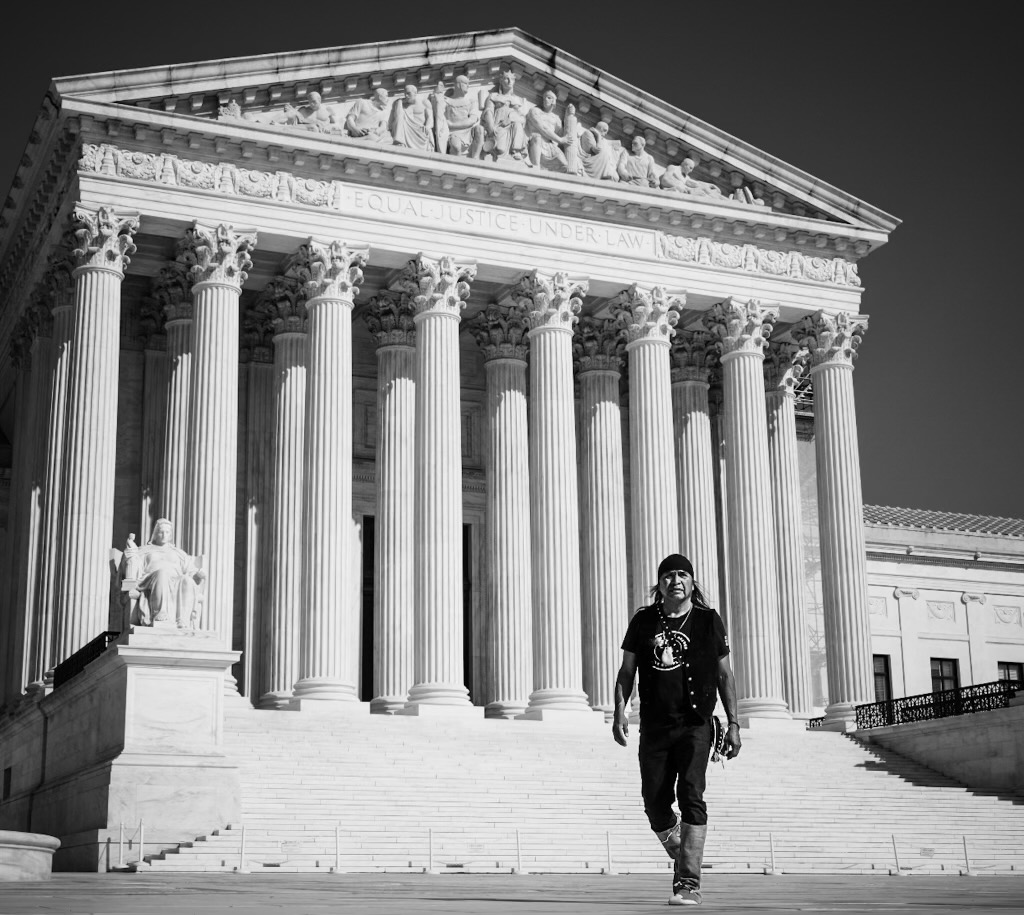
- Details
- By Chez Oxendine
- Policy and Law
The U.S. Supreme Court on Monday declined for a second time to hear a case brought by Apache Stronghold seeking to block a land transfer that would allow copper mining at Oak Flat, a site in Arizona considered sacred by Apache people.
The decision leaves in place a ruling by the U.S. Court of Appeals for the Ninth Circuit, which held that the transfer of Oak Flat to Resolution Copper, a joint venture of mining companies Rio Tinto and U.K.-based BHP, does not violate the Religious Freedom Restoration Act. The Ninth Circuit concluded that while the mine would destroy the site, the government’s action did not constitute a “substantial burden” under the statute.
Oak Flat, known in Apache as Chi’chil Biłdagoteel, is located in the Tonto National Forest about 60 miles east of Phoenix. It was withdrawn from mining in 1955 by executive order due to its religious significance, but in 2014 Congress approved a land swap through the Southeastern Arizona Land Exchange and Conservation Act. The provision authorized roughly 2,422 acres for transfer in exchange for privately held lands deemed environmentally sensitive. Resolution Copper’s plans for its mine would create a crater two miles wide and more than 1,000 feet deep, destroying the site for other uses.
The company has said the project could supply up to a quarter of U.S. copper demand and generate significant economic activity in Arizona, according to a 2024 report by Reuters. The nonprofit Apache Stronghold filed suit in 2021 to prevent the land exchange. The group argued that transferring Oak Flat to Resolution Copper would violate both the First Amendment and the Religious Freedom Restoration Act.
“Oak Flat is sacred land, and its destruction would be the end of our ability to practice our religion there,” Apache Stronghold said in a statement. “We will continue to fight in the courts and in the public square to protect Chi’chil Biłdagoteel.”
Justice Neil Gorsuch dissented from the denial of review, joined by Justice Clarence Thomas. Justice Samuel Alito recused himself due to financial holdings in one of the mining companies, according to a report by Arizona public radio station KJZZ.
“Destroying Oak Flat would be like bulldozing a church, synagogue, or mosque,” Gorsuch wrote in his dissenting opinion when the court declined to hear the case in May. “The Court’s refusal to hear this case is a grave mistake.”
The U.S. Forest Service published a final environmental impact statement in January 2021 under the first Trump administration, but the Biden administration later withdrew it for further tribal consultation. A revised review process is ongoing, and the land transfer has not yet been completed.
With the Supreme Court’s refusal to intervene, the Ninth Circuit’s decision stands, though additional lawsuits challenging the land exchange remain pending, with the next case to hear oral arguments on January 7, per the Apache Stronghold statement. The group said it would continue to pursue those cases.
“While this decision is deeply disappointing, the fight to protect Oak Flat is far from over,” Apache Stronghold said. “We’ll also keep urging Congress, the president and federal agencies to stop the destruction of Oak Flat and protect our ancestral sacred land.”
